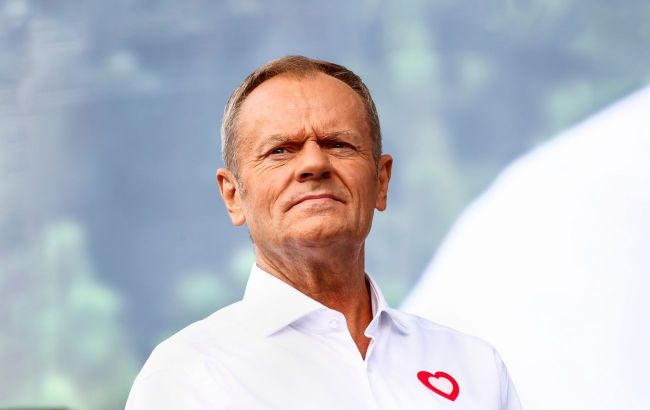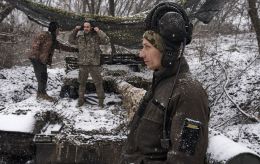Putin's threats of war with NATO shows difficult situation of Russians at front - Tusk
 Polish Prime Minister Donald Tusk (Getty Images)
Polish Prime Minister Donald Tusk (Getty Images)
Russian dictator Vladimir Putin has threatened that NATO could be dragged into the war against Russia amid the possible removal of restrictions on long-range strikes against the RF. His comments highlight the difficult situation the Russians face on the front, according to Polish Prime Minister Donald Tusk.
Tusk dismissed Putin's comments about the risk of escalation if Ukraine is allowed to use NATO-provided long-range weapons to strike targets within Russia.
"It is necessary to take all events in Ukraine and on the Ukrainian-Russian front very seriously, but I would not attach excessive importance to the latest statements from President Putin. They rather show the difficult situation the Russians have on the front," Tusk said.
Putin's comments
Recently, dictator Vladimir Putin commented for Russian propagandists on the possible removal of restrictions regarding Ukraine’s use of long-range weapons. Putin claimed that NATO would be drawn into the war if such a decision were made.
"If this decision is made, it will mean nothing less than the direct participation of Nato countries, the United States, and European countries in the war in Ukraine," Putin said.
British Prime Minister Keir Starmer responded to Putin's threats, reminding him that Russia started the war, and Ukraine has the right to self-defense.
Weapon restrictions
The US and Britain, which are supplying Ukraine with long-range missiles, restrict their use, particularly for strikes on targets in Russia. Ukraine is calling on its partners to lift these restrictions.
Recently, US Secretary of State Antony Blinken and UK Foreign Secretary David Lammy visited Kyiv to discuss this issue with President Volodymyr Zelenskyy. British Prime Minister Keir Starmer discussed lifting the restrictions with US President Joe Biden at the White House.
According to Politico, the US and Britain may reach an agreement on the use of long-range weapons by Ukraine. The relevant agreement will likely be adopted at the UN General Assembly in September.

